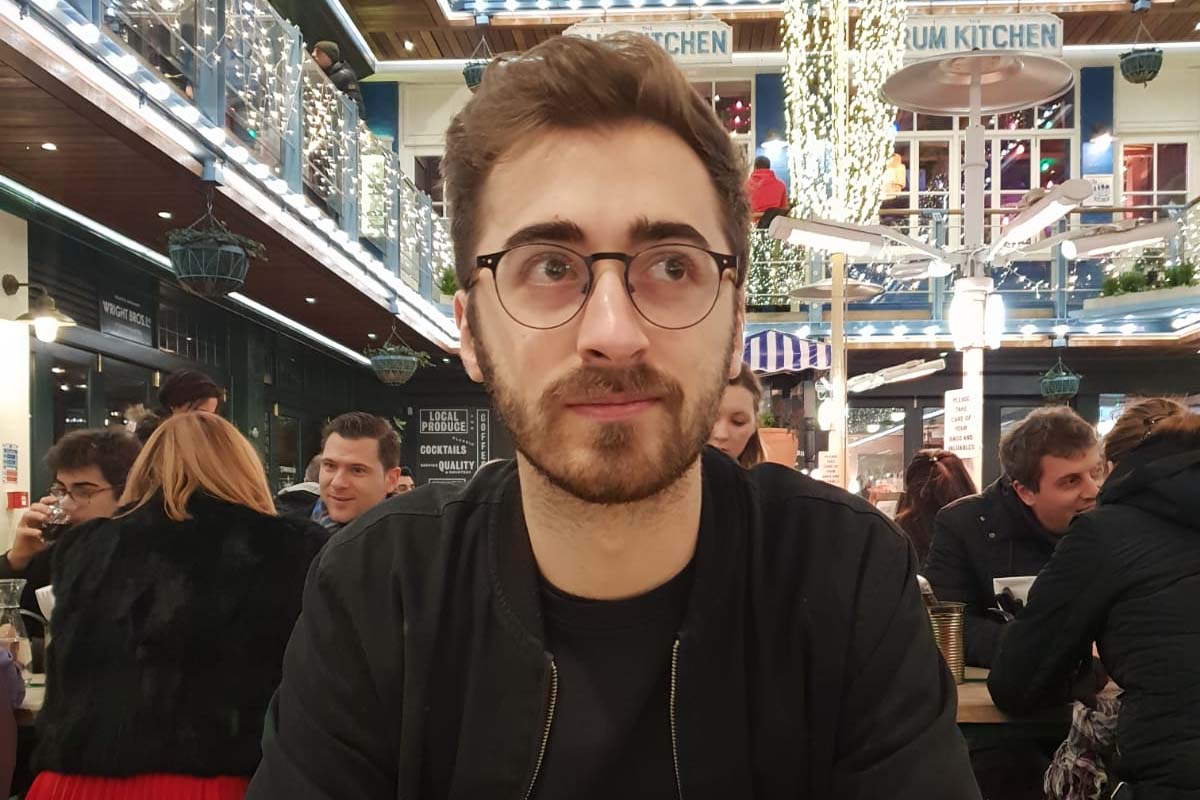CfJ alumnus Seb Jenkins graduated from Kent with a BA in Journalism in 2018. He’s now self-employed, working as a freelance writer, author, editor, social media manager, journalist and more, for multiple clients.
Why did you choose to study a BA Journalism degree at Kent?
I had already decided that I wanted to study journalism as it was a writing-based degree and the skills were transferable to a number of fields. At the time, Kent was number one in the country, offered NCTJ qualifications and it seemed like a great fit for me.
Which skills/knowledge did you learn on your courses that you use most now in your career?
I can’t say that I use much shorthand or anything these days, but the vast majority of the skills I learned at the CfJ are still very much in my day-to-day work. Interviewing people, writing articles using the inverted pyramid, working to deadlines, communicating with a load of different people, managing social media. All of these skills were either learned or developed at the CfJ.
Can you describe your time at CfJ?
I think the best way to describe the CfJ is like a university course in an A level classroom setting. What I mean by that is the smaller year groups and constant access to lecturers very much has that tight-knit A level classroom feel where you get so much face-to-face time with your teachers. The CfJ really is like a little family and, therefore, it becomes just as much about developing yourself as a person as it does a journalist during your time there.
You are the founder of the CfJ Professional Mentoring Scheme can you tell me more about why you set this up and how you hope students will be able to benefit from it?
I have seen a load of other mentorship schemes out and about in the working world and it just occurred to me that the CfJ would be the perfect setting for something similar. During my time there, no matter what year you were in, everyone kind of knew everyone and there is always a constant exchange of advice etc. Having a point of contact who has gone through the exact same journey as you, just a few years before is such a valuable resource, whether you want to ask questions on the CfJ or transferring into the wider working world.
You set up your own business after leaving Kent, can you tell us about that?
When I left university, I was working on fiction writing in my spare time. I decided to take six months out before looking for full-time work in order to concentrate on writing and to see if I could make a go of it. In that time, I signed up to some freelance sites to earn a bit of money as I went and things kind of spiralled from there. I noticed that there was huge demand for freelance writers and I could even get paid to write fiction for people. Over the coming months, I built up more of a client base and have kept growing ever since, now working for myself doing what I love.
How did Kent help you into a career?
It taught me a load of skills that I still use today. It introduced me to friends who I still see and talk to on a daily basis. It taught me a load of life lessons. And it gave me contacts that I will have for years to come.
You have a lot of experience working as a freelancer, could you describe a typical working day?
I think it would first be important to point out that there is no real typical day for a freelancer. If you want structure and reliability, freelancing may not be the best route. One day I could have zero orders and the next I could have twenty. Generally speaking, I wake up and login to my various accounts to reply to messages from potential new clients. I then get through the work I have for my regular clients, always prioritising those relationships and repeat business. Then I move on to new orders from new clients for the rest of the day. It also always pays to be close to your phone/laptop in order to reply to new messages as clients often contact multiple freelancers and work on a first-come, first-serve basis.
What is your favourite memory of Kent?
Obviously, the course itself was so valuable but my favourite memories will always be of the people I met there. We very much formed our own little CfJ family and that will remain for the rest of my life.
You are Chief Sports Writer for The Spurs Web – what advice would you give someone aspiring to a career in Sports Journalism?
I think finding your niche can be valuable. Being an expert on a particular sport or team can make you stand out. While everyone wants to be a sports journalist or football writer, you may find it easier to stand out as a Barcelona expert or tennis expert or golf expert. Having good knowledge of a range of sports is also good to have though. Essentially, as long as you show that you know your stuff and are passionate about the sport, you should find that doors open to you. For example, I am a Tottenham fan and applied for a job at a Tottenham fan website where I have now worked for the past two years. I know the topic, I love the topic (as much as it pains me), and that comes across in my work.
How would you describe your time at Kent in three words?
Late newsroom deadlines.
Anything else you would like to add, or to tell our students?
If anyone has any other questions, please do feel free to reach out to me via Twitter, Instagram or LinkedIn.
Learn more about studying your Journalism BA at the University of Kent

